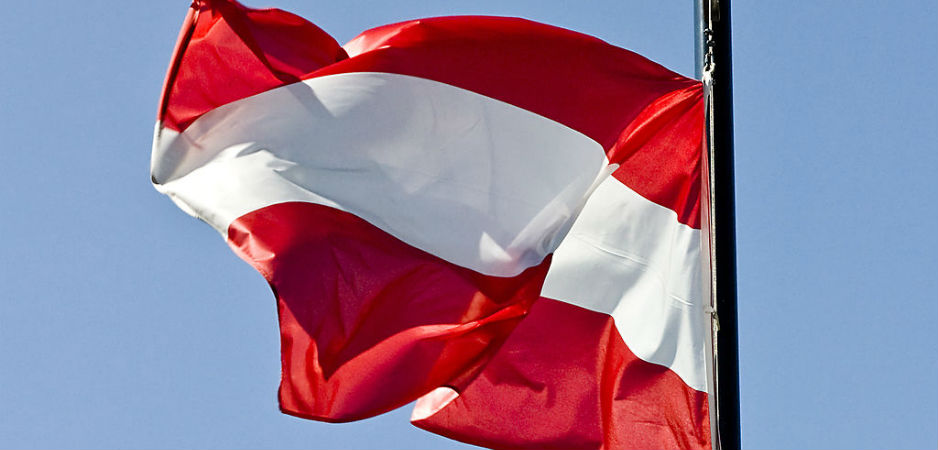The tightest race since 1945 has brought left-wing liberal economist Alexander Van der Bellen forward as the new president of Austria.
Of all places, it is Austria’s smallest municipality of Gramais in the Tyrolean Alps that has become symbolic for the political state the country is in. Only 51 people live in this village—39 of them eligible to vote. On May 22, 18 voters went to the polling station for the presidential election. Half of them chose Alexander Van der Bellen, a former Green Party leader who ran as an independent candidate and eventually won the race. The other half of voters in the picturesque village of Gramais checked the box for Norbert Hofer of the right-wing populist Freedom Party (FPÖ)—as did 49.7% of Austrians.
The match was so close that a final result could only be reached a day later. A striking number of 900,000 postal ballots had to be counted, resulting in Van der Bellen overtaking his opponent, but only by a small sum of 31,000 votes. The election turned into an international media frenzy in Vienna, with hundreds of journalists watching the race almost as anxiously as Austrians themselves.
The reason for this high level of global interest was not because of President-Elect Van der Bellen. The world’s eye was solely focused on Hofer and whether Austria would become yet another European nation led by a right-wing populist. It would have followed a drastic trend around the continent with the right turn of countries such as Poland and Hungary.
Past and Present
Austria has been here before. In 1986, Kurt Waldheim, a former secretary-general of the United Nations (UN), ran for president backed by the centrist People’s Party (ÖVP). In his application to the UN, he lied and failed to mention his involvement under the Nazi regime and his role in the Wehrmacht. Despite enormous international resistance, Waldheim was elected president by 53.9% of Austrians. He lasted one term until 1992 and remained widely isolated internationally; he was declared a persona non grata in the United States.
This time around, the pressure against Hofer from outside Austria came from high ranking politicians, including the presidents of the European Commission and Parliament, Jean-Claude Juncker and Martin Schulz, among others.
This was different from one year ago. When speaking to the public, Austrian leaders headed by Chancellor Werner Faymann of the Social Democrats (SPÖ) euphemistically presented themselves to be just fine. While the governing coalition of the SPÖ and ÖVP had taken heavy blows in regional elections in Burgenland, Styria and later in Upper Austria, there was no sign that their seemingly sedated political strategy would change any time soon. And hardly anyone outside the national borders seemed to be paying much attention to the alpine republic.
Suddenly on August 28, 2015, however, all eyes were on Austria and a truck found on a highway in the eastern province of Burgenland: 71 refugees—eight women, four children and 59 men—had tragically died on their journey to safety. Soon after, German Chancellor Angela Merkel declared, “We can do it!” in response to the humanitarian crisis that surfaced in the movement of refugees and migrants from Syria, Afghanistan and many other countries. Faymann followed suit, opening borders and letting thousands of refugees enter Austria, most of whom did not plan on staying but instead had the aim of reaching Germany.
The Viennese regional elections served as a final wake-up call in terms of the growing power of the far-right. From that moment, the “refugees welcome” attitude adopted by Faymann and his cabinet had changed. Instead, he introduced fierce laws to keep refugees out of the country. If nothing else, Faymann was brought to his knees by Hofer and his FPÖ and their aggressive anti-refugee campaigning. A large part of the population had bought into the populist strategy of fear and distrust in anything and anyone foreign. On top of that, constant disappointment and general disenchantment with politics were feeding the specter of the right-wing movement.
Alexander Van der Bellen
Today, Faymann is history. Booed by the left-wing of his own party at their traditional parade on May 1, he resigned a week later. Christian Kern, the former national railway (ÖBB) chief and figurehead during the refugee crisis, has taken office. With him came a hint of hope in the midst of political turmoil in Austria that a final right turn may be fended off. Kern has only a little time to get his new cabinet back on track and to prove that he is the wunderkind that he is expected to be. For President-Elect Van der Bellen’s campaign, Kern’s appearance was the silver lining of destructive political turbulence that seemed to be helping his rival.
But who is this rawboned, chain smoking economist who has gathered half the country behind him? Alexander Van der Bellen, known by his nickname Sascha, was born in 1944 in Vienna. His father, an aristocrat of German, Dutch and Estonian descent born in Russia, and his Estonian mother had both fled Stalinism. Van der Bellen is a retired professor of economics at the University of Vienna. As a member of the Green Party, he sat in parliament for many years and acted as their federal spokesperson until 2008. During the election battle, he insisted on being an independent candidate for the presidency—although the Green Party provided not only moral, but also monetary support for his campaign.
In the end, Alexander “Sascha” Van der Bellen received 50.3% percent of the vote—many of which came his way to prevent Hofer from becoming president. Van der Bellen gathered a large committee of supporters around him consisting of influential people in politics, science and the arts. Toward the end of the race, he even managed to form unexpected alliances with the Catholic women’s movement, despite leaving the Catholic Church and being without a religious denomination.
Split Austria
One thing is for certain: Van der Bellen and Hofer have managed to split the country. Their average voter types could hardly be more different. The trench between them separates women and men, urban and rural, higher and lower education levels. If one was to give into a bold thought experiment of only one gender being allowed to vote—let us say women for the sake of the argument—Van der Bellen would have won with 60%. Young women, living in the city in their late 20s and with a college degree went to the polls to pick Van der Bellen. Hofer’s votes came from men up to 59 years old without a high school diploma and who were in search of a “strong president.”
But Van der Bellen’s victory is nothing but a faint signal of reason to Europe and the world. He will be welcomed by the international community and ought to represent Austria in an adequate diplomatic manner. However, the role of the Austrian president is not what you may think. The presidency does not hold a great deal of power inside or outside the country.
Added to that, half of Austria voted against the president-elect in favor of the antipode: Hofer and the FPÖ. This is the party’s greatest success, and it is to be expected that they will benefit from this historic result at the general elections in 2018.
In April, before the first round of elections, the Austrian Broadcasting Corporation (ORF) aired a debate between all the candidates, in which Hofer said: “You will be surprised by what can be done.” While he lost the election, his statement is as worrying as ever. Governments in Europe must overcome their nationalist approach to solve global challenges, which can only be tackled if member states of the European Union manage to unite and find common ground. Otherwise, Hofer’s statement may well become a self-fulfilling prophecy.
President-elect Van der Bellen has acknowledged that he is taking over a split nation. In his first speech after the final result, he said the trenches had been there before and that “maybe we did not look close enough and we will have to pay more attention.” Because in the end, both halves of the population still matter. If he didn’t feel presidential yet, he certainly did by closing his speech with: “You are as important as I am and I am as important as you are. And together we add up to this beautiful Austria.”
The views expressed in this article are the author’s own and do not necessarily reflect Fair Observer’s editorial policy.
Photo Credit: Mikekilo74
 We bring you perspectives from around the world. Help us to inform and educate. Your donation is tax-deductible. Join over 400 people to become a donor or you could choose to be a sponsor.
We bring you perspectives from around the world. Help us to inform and educate. Your donation is tax-deductible. Join over 400 people to become a donor or you could choose to be a sponsor.
Support Fair Observer
We rely on your support for our independence, diversity and quality.
For more than 10 years, Fair Observer has been free, fair and independent. No billionaire owns us, no advertisers control us. We are a reader-supported nonprofit. Unlike many other publications, we keep our content free for readers regardless of where they live or whether they can afford to pay. We have no paywalls and no ads.
In the post-truth era of fake news, echo chambers and filter bubbles, we publish a plurality of perspectives from around the world. Anyone can publish with us, but everyone goes through a rigorous editorial process. So, you get fact-checked, well-reasoned content instead of noise.
We publish 2,500+ voices from 90+ countries. We also conduct education and training programs
on subjects ranging from digital media and journalism to writing and critical thinking. This
doesn’t come cheap. Servers, editors, trainers and web developers cost
money.
Please consider supporting us on a regular basis as a recurring donor or a
sustaining member.
Will you support FO’s journalism?
We rely on your support for our independence, diversity and quality.






